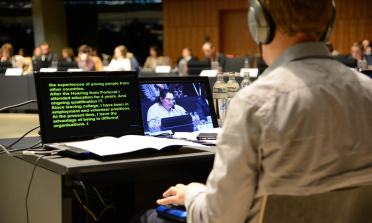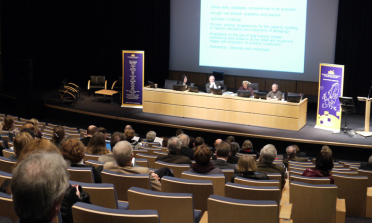We carry out activities involving our extensive network in EASNIE member countries. The aim is to provide member countries and stakeholders at the European level with evidence-based information and guidance on implementing inclusive education systems.
Read about the various EASNIE activities in detail below. You can use the filters to search and select the activities you want to see based on their theme, the participating countries, or the years they took place in. You can select multiple filters to narrow down your search.
This is a list of EASNIE activities in chronological order.
For further information on any of the EASNIE activities, please contact the Secretariat: secretariat@european-agency.org

Raising Achievement for All Learners – Quality in Inclusive Education
The RA4AL project aims to address the ways in which inclusive policy and practice can raise the achievement of all learners.

Vocational Education and Training: Policy and Practice in the field of Special Needs Education
This project aims to identify and investigate the relevant key aspects of VET programmes for learners with SEN, with a clear link to employment opportunities. In particular, the project investigates what works in VET for learners with SEN and why.

Mapping the Implementation of Policy for Inclusive Education
Policy-makers working in inclusive education need to know what qualitative and quantitative information to collect and the best methods of doing this in order to map the implementation of policies for inclusive education. The goal for the MIPIE project is to provide them with clear proposals on agreed signposts to track progress towards educational inclusion.

Accessible Information Provision for Lifelong Learning
This project set out to use existing European and international policy and standards for information accessibility as a basis for discussing the implications, as well as the practical implementation of accessible information provision within lifelong learning.

Teacher Education for Inclusion
The TE4I project investigated how all teachers are prepared via their initial training to meet the needs of more diverse learners in the classroom, seeking answers for the following key issues: What kind of teachers do we need for an inclusive society in a 21st century school? and What are the essential teacher competences for inclusive education?
